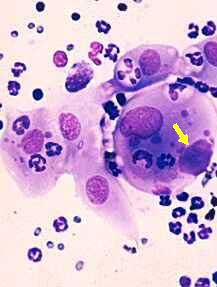It is not uncommon for men who excel in the business world to feel helpless like children when it comes to intimate health issues. Among the most frequently encountered and often confusing are infections such as chlamydia, E.coli, prostate issues, and erectile dysfunction.
Men with intimate health problems often avoid doctor visits and shy away from honest discussions about their health. Even when these conditions disrupt their daily lives, they prefer not to know the underlying causes. When a man does visit a urologist or andrologist, it is often due to the urging of a smart and caring partner.
Here are some of the most common intimate health issues men face along with their specific symptoms:
Chlamydia Infection
 |
|
Chlamydia Bacteria |
This dangerous bacteria is responsible for over 50% of urinary and genital infections. The infection can remain asymptomatic for a long time, with the only transmission route being sexual contact.
Signs that may worry partners include: mild fever and avoidance of sexual activity.
Symptoms causing concern for men? A burning sensation in the urethra, discomfort during “marital duties,” and pain after ejaculation.
It is essential to consult a urologist or venereologist for tests to identify the specific strain of chlamydia. Blood and urine tests, as well as ultrasounds of the urinary and genital systems, may be necessary. The doctor will prescribe the appropriate antibiotics, with a minimum treatment duration of 2 weeks, followed by a required follow-up test.
Both partners must be treated, and sexual activity should be paused during treatment (if not, condoms must be used). Neglecting treatment can lead to serious complications such as epididymitis, infertility, and potential issues affecting other body parts (e.g., causing arthritis or pneumonia).
Recently, scientists have shown that untreated chlamydia bacteria can contribute to atherosclerosis, increasing the risk of heart attacks.
E.coli and Mycoplasma Infection
These bacteria can cause various dangerous complications in men. The primary transmission route is through sexual contact, but they can also be contracted from public swimming pools, saunas, and gyms. Individuals with anal infections and poor personal hygiene are more susceptible.
Signs that may worry partners: difficulty and strain during “marital duties” (possibly avoiding them), frequent trips to the restroom.
Symptoms causing concern for men: pain or burning during urination, bladder discomfort, burning in the ureters, unusual discharge from the penis, pain during intimacy.
A visit to a urologist or dermatologist is advised. The treatment approach will be similar to that for chlamydia infections. Depending on the specific situation, medications like Metronidazole or Tinidazole, and Nolicin or Ciprofloxacin may be prescribed. Treatment duration ranges from 2 to 3 weeks, and both partners must be treated while refraining from sexual activity (or using condoms).
To prevent transmission to family members, it is important to disinfect toilets and use separate towels.
Ignoring these issues can lead to prostatitis, bladder infections, or kidney infections, and infertility. If not treated thoroughly, the pathogens residing in the prostate can transmit to partners.
Prostate Hyperplasia
Sedentary lifestyles and urinary tract infections can facilitate the development of this condition. For younger individuals, prolonged stress significantly increases the risk of developing prostate issues.
Signs that may worry partners: frequent urination at night and difficulties maintaining sexual performance.
What might alarm men? Unusual urges to urinate accompanied by pain, blood in urine, prolonged urination times, and a weak urine stream. Testicular and groin pain, along with difficulty achieving necessary sexual performance, are often the first signs of the condition.
Consulting a urologist or internist is recommended. The doctor will examine the genital organs, related areas, conduct blood and urine tests, perform prostate ultrasounds, and possibly X-ray the kidneys.
Based on the specific condition, treatment may involve Western or traditional medicine.
Erectile Dysfunction
Several factors can contribute to erectile dysfunction, including low testosterone levels, prostate hyperplasia, certain medications (antihypertensives, antidepressants), and overall body fatigue due to overwork or stress. It is not uncommon for erectile dysfunction to signal underlying health issues such as diabetes or atherosclerosis.
Signs that may worry partners: decreased sexual performance and indifference towards intimacy.
What might cause anxiety for men? The recurring phenomenon of “the upper body commands, and the lower body does not obey,” leading to a gradual loss of sexual desire.
It is best to consult a urologist, internist, or a familiar specialist. The doctor will assess whether the patient has been experiencing stress or if there are negative effects from medications. Some tests (blood and urine) may be required to rule out various conditions affecting male performance.
The most effective medications? Individuals without certain conditions (like cardiovascular diseases or a history of strokes) may use vasodilators such as Viagra or Cialis. In some cases, hormone therapy may be necessary to supplement deficient testosterone levels.
Erectile dysfunction can lead to depression and even family breakdowns. The advice for partners is to refrain from blaming or criticizing their significant other for unmet expectations. Meanwhile, husbands should avoid purchasing unverified “miracle drugs” from street vendors or unreliable sources.
When should you see a doctor? Immediately, if a man experiences any of the following symptoms: pain in the penis during or after sexual activity, blood in urine or semen, frequent bladder pain, pain or burning while urinating, recurrent erectile dysfunction, or a persistent mild fever.


















































